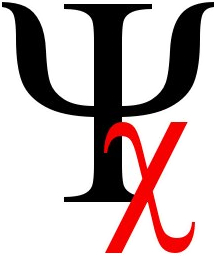The Psychological Reality of Fake News—and Vice Versa
A Letter from the
Editor-in-Chief
In an unusual turn of events, linguistics—qua body of practitioners rather than body of knowledge—may have something beneficial to contribute to the much broader public and political discourse of the day. But first, a short history lesson for the young’uns.
Using an unnamed technological purveyor of word sequences well-known to computational linguists and other word nerds, one can see that the use of the phrase psychological reality increased steadily through the early 20th century, with a dramatic increase after 1960 to a peak around 1980, followed by a precipitous decline through the end of the millennium. (The apogee of the irresolute retreat to mere psychological plausibility lags the reality by a little over a decade.) So, what of psychological reality?
|
|
 Georg Kremnitz, 1994, “Sprechen und Denken—Denken und Sprechen. Zur Frage der sprachlichen Relativität,” Quo vadis, Romania? No. 3, pp. 63–72.
Georg Kremnitz, 1994, “Sprechen und Denken—Denken und Sprechen. Zur Frage der sprachlichen Relativität,” Quo vadis, Romania? No. 3, pp. 63–72.
Chiasmus of the Month
June 2018
|
|
|
|
|
As used by linguists at its peak, a claim of psychological reality was posited to be a valuable attribute of a theory, framework, or formalism, presumably in that it indicated that the claimant was a practitioner of actual science, rather than a deficient dabbling dilettante just visiting from the humanities. As a result, generativists claimed superior psychological reality over functionalists, and functionalists in turn over generativists. Structuralists were quite sure that they had the best claim to actually caring about psychological reality, and as such, their protestations were the most roundly ignored.
In actuality, psychological reality—or its perceived lack—was used as a nebulous cudgel against one’s theoretical and philosophical opponents, though it was less an effective weapon than a marker of one’s tribal affiliation within linguistics. Over time, the value of the claim waned, and only the most partisan hacks brought it up or accorded it any value. Eventually, cognitive linguists took psychological reality seriously, while computational linguists proved it irrelevant in many practical applications.
Today’s version—equivalent in magnitude but opposite in polarity—is fake news, attributed to cultural opponents as a nebulous cudgel, though it is less of an effective weapon than a marker of one’s tribal affiliation within politics.
The lessons to be learned? For those who have tired of fake news qua cudgel, you likely have only a few decades to wait until its value in signalling tribal cliquishness fades to background noise.
As for longer-term predictions, let us first make the obvious parallels: the role of the more structurally powerful yet intellectually vapid generativists is played by Republicans, the less powerful and ineffectual functionalists by Democrats, the virtually irrelevant structuralists perhaps by Libertarians, and chief blowhard Chomsky by Trump. (The fact that both Chomsky and Trump would each despise being analogized to the other is just icing on the wannabe authoritarian cake.) So... yeah... considering the psychological news and fake reality, it’s not looking good.

